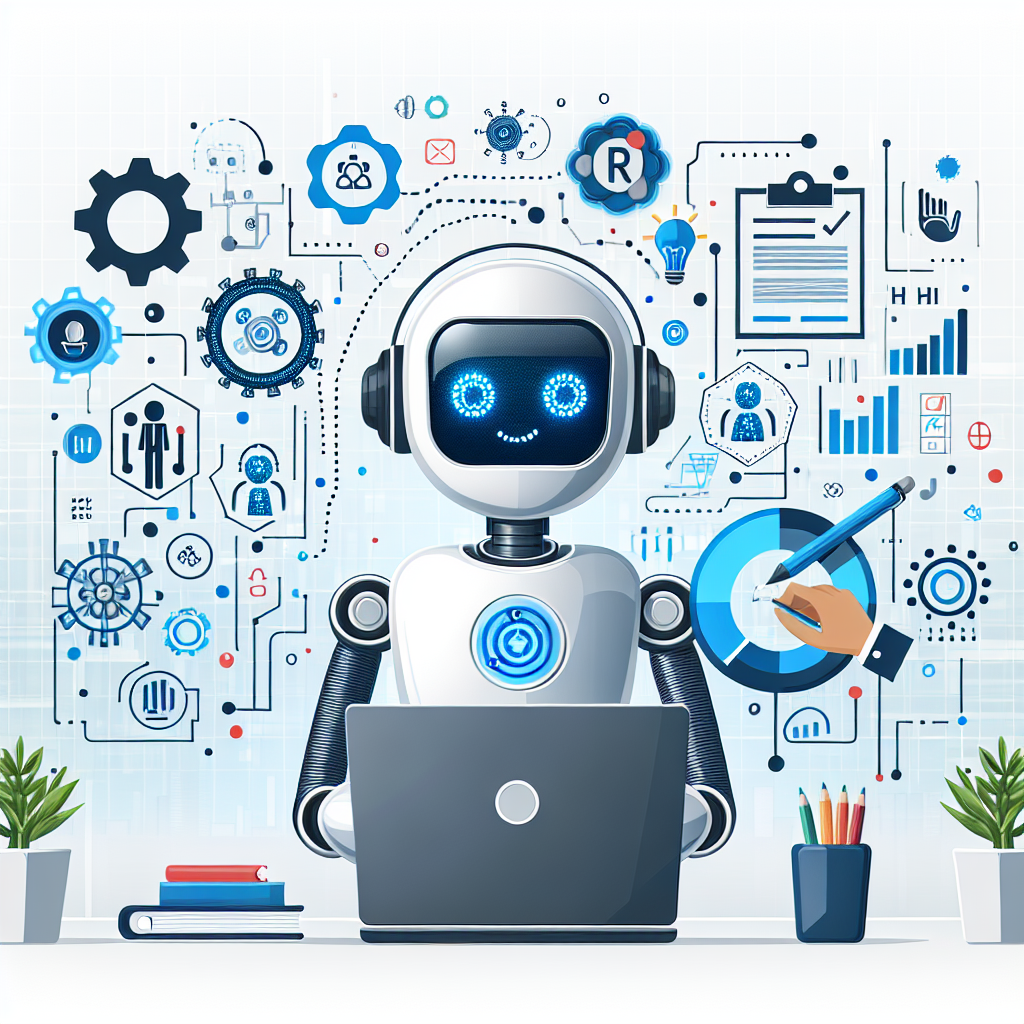Artificial Intelligence (AI) has been making waves in various industries, and human resources is no exception. The use of AI in HR has revolutionized the way businesses manage their workforce, streamline processes, and enhance overall efficiency. From recruitment to employee engagement, AI is transforming the HR landscape in numerous ways, providing a range of benefits to both employers and employees.
One of the key benefits of AI in HR is its ability to streamline the recruitment process. With the help of AI-powered tools, HR professionals can automate the screening and shortlisting of candidates, saving valuable time and resources. AI algorithms can analyze resumes, assess candidate skills, and even conduct initial interviews, allowing HR teams to focus on more strategic tasks. This not only speeds up the hiring process but also ensures that the most qualified candidates are selected for the job.
Moreover, AI can help improve the quality of hires by identifying patterns and trends in candidate data. By analyzing past hiring decisions and performance data, AI can provide insights into what makes a successful hire, enabling HR teams to make more informed decisions. This can lead to better retention rates, increased productivity, and improved overall performance within the organization.
Another benefit of AI in HR is its ability to enhance employee engagement and productivity. AI-powered tools can analyze employee data to identify trends and patterns related to performance, job satisfaction, and other factors affecting engagement. This information can help HR teams develop targeted strategies to boost employee morale, increase motivation, and drive productivity. For example, AI can be used to personalize learning and development programs, provide real-time feedback, and even predict employee burnout before it happens.
AI can also help HR teams make more data-driven decisions. By analyzing large datasets, AI algorithms can uncover insights that may not be apparent to human analysts. This can help HR professionals identify trends, patterns, and correlations in employee data, enabling them to make more informed decisions about recruitment, retention, and talent development. In addition, AI can help HR teams predict future trends and challenges, allowing them to proactively address issues before they escalate.
Furthermore, AI can help improve diversity and inclusion within the workplace. By removing biases from the recruitment and selection process, AI can help ensure that all candidates are evaluated based on their skills and qualifications, rather than factors such as gender, race, or ethnicity. This can lead to a more diverse and inclusive workforce, which has been shown to improve innovation, creativity, and overall performance within organizations.
In addition to these benefits, AI can also help HR teams automate routine tasks and processes, such as payroll processing, benefits administration, and compliance monitoring. By freeing up time and resources, AI allows HR professionals to focus on more strategic initiatives, such as talent development, succession planning, and organizational development.
Despite the numerous benefits of AI in HR, there are also some challenges and concerns associated with its implementation. One of the main concerns is the potential for bias in AI algorithms. If not properly trained and monitored, AI systems can perpetuate existing biases in the recruitment and selection process, leading to unfair and discriminatory outcomes. To address this issue, HR teams must ensure that AI algorithms are trained on diverse and unbiased datasets and regularly monitored for bias.
Another challenge is the potential for job displacement due to automation. As AI becomes more prevalent in HR, some routine tasks and roles may become automated, leading to job losses for some employees. To mitigate this risk, HR teams must invest in reskilling and upskilling programs to help employees adapt to the changing landscape and take on more strategic roles within the organization.
In conclusion, the benefits of AI in HR are numerous and far-reaching. From streamlining recruitment processes to enhancing employee engagement and productivity, AI is transforming the way HR teams operate and adding significant value to organizations. By leveraging AI-powered tools and technologies, HR professionals can make more informed decisions, improve workforce management, and drive organizational success in today’s fast-paced business environment.
FAQs:
Q: How can AI help improve the recruitment process?
A: AI can help improve the recruitment process by automating tasks such as resume screening, candidate shortlisting, and initial interviews. AI algorithms can analyze candidate data to identify the most qualified candidates, saving time and resources for HR teams.
Q: What are the potential challenges of using AI in HR?
A: Some potential challenges of using AI in HR include bias in algorithms, job displacement due to automation, and concerns about data privacy and security. HR teams must address these challenges to ensure that AI is used ethically and effectively within the organization.
Q: How can AI help enhance employee engagement?
A: AI can help enhance employee engagement by analyzing employee data to identify trends and patterns related to performance, job satisfaction, and other factors affecting engagement. This information can help HR teams develop targeted strategies to boost morale, motivation, and productivity.
Q: What steps can HR teams take to ensure the ethical use of AI in HR?
A: HR teams can ensure the ethical use of AI in HR by training algorithms on diverse and unbiased datasets, regularly monitoring for bias, and involving key stakeholders in the decision-making process. By taking these steps, HR teams can ensure that AI is used responsibly and effectively within the organization.

